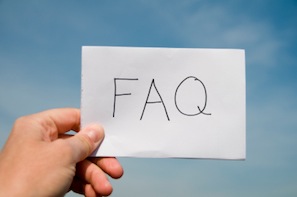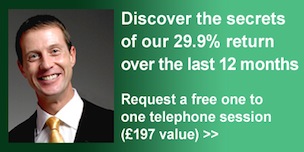 In our last two posts, we have looked at the key benefits of SIPPs. In this post, you'll find a comprehensive SIPP FAQ that we’ve put together. By the end of it we're pretty sure that you’ll know more about SIPPs than the majority of so called ‘financial experts’.
In our last two posts, we have looked at the key benefits of SIPPs. In this post, you'll find a comprehensive SIPP FAQ that we’ve put together. By the end of it we're pretty sure that you’ll know more about SIPPs than the majority of so called ‘financial experts’.
Q: What is a SIPP?
A: A Self-Invested Personal Pension (SIPP) is the name given to the type of personal pension scheme that allows individuals to make their own investment decisions from the full range of investments approved by HM Revenue and Customs (HMRC).
Q: Are SIPPs a personal pension?
A: Yes, SIPPs are a type of personal pension plan. Another subset of this type of pension is the stakeholder pension plan. SIPPs, in common with other personal pension schemes, are tax ‘wrappers’, allowing tax rebates on contributions in exchange for limits on accessibility.
Q: How much can I contribute to a SIPP?
A: For the current tax year 2013/14, you can pay into a SIPP a gross amount equal to your relevant earnings up to a maximum of £50,000. The tax relief rate can now be up to 45% and your SIPP contribution will receive tax relief at your top rate of tax. This is good news for higher and additional rate tax-payers who will be able to enjoy full relief on their contributions, at either 40% or 45%.
Did you know that if you have been a member of a pension scheme but have contributed less than £50,000 gross in any of the previous three tax years, you can make an additional payment into your pension? Yes, by using the carry forward rules you could make SIPP contributions up to £200,000 gross and receive up to 45% tax relief, saving you a total of £90,000 (if your taxable income is in excess of £150,000). The annual allowance falls to £40,000 from 2014/2015.
Q: How does the tax relief work?
A: The SIPP provider claims a tax refund at the basic rate (20% in tax year 2013/14) on behalf of the customer. The 20% is added to the 'pot' some 2–6 weeks after your payment is made. Higher rate and additional rate taxpayers must claim any additional tax refund through their tax return, or by otherwise contacting HMRC.
Q: What type of things can I invest into using a SIPP?
A: The exact choice of investments will depend on your SIPP manager but you can typically choose from thousands of funds, as well as pick individual shares, bonds, gilts, unit trusts, investment trusts, exchange traded funds (ETFs), cash and commercial property. The investment options for ordinary personal pensions are likely to be much narrower. Typically they will be restricted to a number of funds run by the pension provider.
Q: Who is eligible to own a SIPP?
A: Any UK resident (or individual with earnings chargeable to UK income tax) under the age of 75 can open a SIPP. In addition, Crown employees posted overseas and their spouses and civil partners can also contribute to a SIPP.
Q: What are the different types of SIPP?
A: According to Wikipedia, the pension industry has moved towards four terms in order to describe SIPP types:
- Deferred: This is effectively a personal pension plan in which most or all of the pension assets are held in insured pension funds.
- Hybrid: A hybrid SIPP is a scheme in which some of the assets must always be held in conventional, insured pension funds, with the rest being able to be 'self-invested'.
- Pure or Full: These types of SIPP offer unrestricted access to many types of investment.
- Low-cost: Low-cost SIPPs are designed for the vast majority of pension savers and offer access to thousands of funds at reduced charges but may not offer access to some of the more exotic investment options.
Q: How do I choose a SIPP?
A: SIPPs come in very different shapes and sizes and sometimes with confusing charging structures. Choosing the right SIPP can therefore be a challenging process. It is important that you end up with a SIPP that can do everything you require of it, but also offers value for money. The last thing you want is to be paying for a degree of flexibility that you will never use. The one we – and most of our clients – use is the low-cost SIPP.
Q: Can you give me a summary of the key benefits of SIPPs?
A: Yes, here are five key benefits:
- Like all other approved pension arrangements, they provide generous tax benefits
- They give you control of your pension
- They offer flexible options for taking an income in retirement
- They enable you to reduce your costs
- They will mean less paperwork if you consolidate existing pensions.
Q: What are the tax advantages?
A: SIPPs have three significant tax advantages:
- Tax relief on contributions: Payments that you make to your SIPP will have basic rate income tax rebated directly into the SIPP. If you pay a higher rate of income tax, you can claim further tax relief at your marginal rate through your annual tax return.
- Tax-efficient returns: Any returns you make on investments inside a SIPP are free from income tax and capital gains tax (CGT).
- Tax-free lump sum: When you reach 55, you can start to draw pension benefits from your SIPP. You can withdraw up to 25% of the value of your pension fund tax-free, as a lump sum. All remaining withdrawals are subject to income tax based on your circumstances at the time.
Q: Can I open more than one SIPP?
A: Yes, if you have an existing pension arrangement – such as a company pension scheme or another SIPP or personal pension – you can still open a SIPP alongside it. You are allowed to contribute to multiple pension schemes in the same tax year, provided that your combined total contributions do not exceed the limits.
Q: How can I buy a SIPP?
A: Investing in a SIPP is very easy and you can buy one by phone, by post or by going online. SIPP providers include AJ Bell, Fidelity, Hargreaves Lansdown, James Hay, Skandia, Standard Life, Bestinvest, Alliance Trust, Sippdeal, Charles Stanley and TD Direct. We purchased ours through Fidelity.
Q: What are the risks?
A: A SIPP is just a wrapper and it is as risky as the investments you place within it.
Q: What happens if the SIPP provider goes bust?
A: Any assets you hold within a SIPP are ring-fenced and held separately from the SIPP provider. Therefore, if the SIPP provider fails, your SIPP will be safe. Any creditors will be unable to access your money and, although it will take time, and probably aggravation, you will eventually be reunited with it when it is transferred to another provider.
Q: What happens to my SIPP if/when I die?
A: In most cases, there is no inheritance tax payable on your pension when you die, since pensions are structured as a trust and sit outside your estate. However, depending on when you die (i.e. before or after age 75), whether you have taken any benefits from your pension and who will inherit your assets, there could be other taxes or charges incurred.
In theory, your pension trustees have complete discretion as to who receives your pension benefits after your death. This is necessary to ensure that these benefits are exempt from inheritance tax and if this discretion is impaired they may become taxable as part of your estate.
In practice, the trustees will consider your wishes and preference will obviously be given to your spouse and any dependants. In order to make sure your assets go to the right person, you need to complete a nomination form stating who you would like to receive the funds from your pension. If you have made no nomination and there is no obvious beneficiary, the trustees will consider the beneficiaries of your will and are likely to be influenced by this.
We hope you've found this SIPP FAQ useful. In our next post, we'll dispel some ‘SIPP myths’.
As always, if you have any questions or thoughts on the points covered in this post, please leave a comment below or connect with us @ISACO_ on Twitter.
About ISACO
ISACO is a specialist in ISA and SIPP Investment and the pioneer of ‘Shadow Investment’, a simple way to grow your ISA and SIPP. Together with our clients, we have £57 million actively invested in ISAs and pensions*.
Our personal investment service allows you to look over our shoulder and buy into exactly the same funds as we are buying. These are investment funds that we personally own and so you can be assured that they are good quality. We are proud to say that by ‘shadowing’ us, our clients have made an annual return of 12.5% per year over the last four years** versus the FTSE 100’s 7.4%.
We currently have close to 400 carefully selected clients. Most of them have over £100,000 actively invested and the majority are DIY investors such as business owners, self-employed professionals and corporate executives. We also have clients from the financial services sector such as IFAs, wealth managers and fund managers. ISACO Ltd is authorised and regulated by the Financial Conduct Authority (FCA). Our firm reference number is 525147.
* 15th November 2012: Internal estimation of total ISA and pension assets owned by ISACO Investment Team and ISACO premium clients.
** 31st December 2008 - 31st December 2012.
ISACO investment performance verified by Independent Executives Ltd.
To download our free report 'A Golden Opportunity' >>
To download our Shadow Investment brochure >>
To start your 14 day free 'no obligation' trial of Shadow Investment >>















